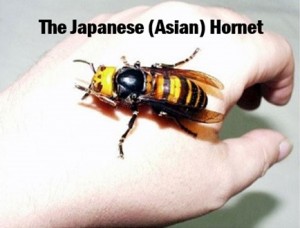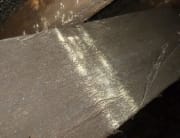According to a poll run by the Daily Mirror toward the end of 2014, 76% of UK readers now fear the invasion of foreign pests to our shores. With the latest story, regarding the delightfully named ‘stink bug’, the topic of foreign pests has been brought back into the public consciousness, causing fear in three quarters of us about these new invaders.
Other high profile foreign pests that have already arrived or seem destined to arrive in the UK include: The Japanese (or Asian) Hornet, False Widow Spider, Mosquitos, Japanese Knotweed, Minks and Russian Zebra Mussels.
According to research undertaken by the BBC, attempts to control these pests cost the UK over 1.7 BILLION pounds a year, the total cost reaching such levels due to the variety of threats that these pests cause. Alongside a potential threat to human health foreign pests are also a threat to our farming crops and native plant life, indigenous wildlife population and even our water supply.
Below we take a closer look at some foreign invaders and examine why the British public fear them:
Having killed 6 people in France in the last decade and an estimated 30-40 people each year in their native East Asia, the Japanese Hornet is an understandably intimidating pest. Recently, they attacked a charity run at Highclere Castle (the filming location of Downton Abbey), hospitalising 1 person.
Particularly large and aggressive, Japanese Hornets can grow to 5cm or 2inches long and have a 6mm venom filled sting. The Hornets are carnivorous and are capable of killing up to 40 honey bees in a single minute.
Their threat is contained in the venom they produce which can cause renal (kidney) failure and anyone who receives more than 10 stings should seek medical treatment immediately.
Arrived in the UK: 2014
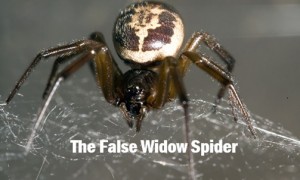
Originally from Canary Islands, the False Widow has kept mainly to the far South of the UK where the climate is warmest. However with the arrival of a warmer climate in recent years, sightings and reports of false widow bites have become far more common throughout more areas of the country.
Widely regarded as Britain’s most venomous spider the False Widow can deliver a nasty bite that can lead to fever, nausea, headaches, lethargy and even chest pains in extreme cases – although it is worth pointing out that there has been a recorded fatality in the UK attributed to a False Widow Spider.
There have however been several well reported cases where a potential loss of limb was caused by an infection stemming from being bitten by the False Widow.
Arrived in the UK: Around 150 Years Ago.
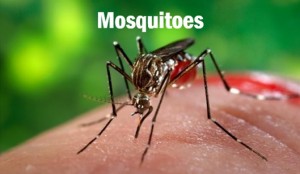
There are believed to be between 30 and 35 species of mosquitoes in the UK currently of which, around 18 are believed to be capable of transmitting diseases that are harmful to humans.
The concern for many regarding mosquitoes is, with warmer weather set to stay, the arrival of more species of mosquito and specifically those carrying diseases such as Malaria and Dengue fever. In fact, this year it has been reported that the Asian Tiger Mosquito has already arrived in Kent which is capable of spreading the aforementioned Dengue fever as well as Chikungunya – a virus that can cause a fever of over 40 degrees and joint pain that can last for many years.
As well as the risk of transmitting disease, a mosquito bite will cause itchiness, redness and swelling.
Arrived in the UK: Unclear – Mosquitoes are believed to be around 95 million years old and it is likely that they are been present in the UK at various stages during that time, depending on climate conditions.
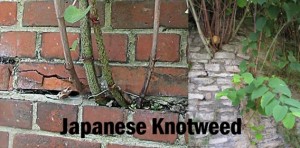
Not all invasive pests are animals and not all pose a threat to human health, but rather human property. One such example of this is Japanese Knotweed, now considered to be one of the world’s most invasive species.
The plant begins to grow in early spring and is capable of growing in any type of soil, no matter how poor the quality. Japanese Knotweed can grow up to 20cm a day and 3 metres tall in just a few short months.
It can cause significant damage to concrete structures and is notoriously hard to eradicate. To the extent that, it is reported that it cost the government over £70 million to remove Japanese Knotweed from the Olympic Park site prior to 2012.
Arrived in the UK: In the 1850’s.
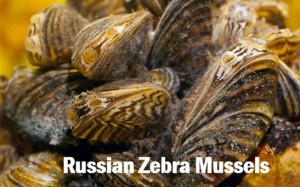
Having arrived in the UK on the hull of ships from Eastern Europe, these Mussels reproduce so quickly that they can have a catastrophic effect on other local wildlife. In particular other species of local mussels as they can grow all over them, starving them of food. A single Zebra Mussel is capable of producing 1 MILLION offspring in a single year.
Aside from the damage to other wildlife another issue the mussels cause is, again due to their rate of reproduction, the blocking of water pipes. Millions of mussels can grow on the inside of water pipes causing the flow of water to become disrupted and even contaminated.
This was the case last year in Rutland, where the situation became such a concern that Anglican Water were forced to spend £500,000 on the installation of a bespoke filter to sift them out.
Arrived in the UK: Around 10 Years Ago.

